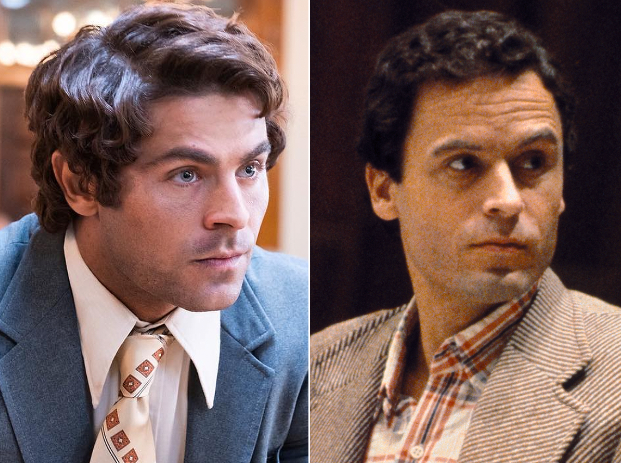Are serial killer movies and shows horrifying or glorifying?
October 17, 2022
As of now, the latest serial killer-inspired T.V. series is the 2022 Netflix mini-series, Dahmer – Monster: The Jeffrey Dahmer Story. With it, came the most significant series debut in Netflix history. Netflix has come out with other serial killer shows and even movies, with one of the bigger movies of the last few years, Extremely Wicked; Shockingly Evil and Vile, which follows the story and life of infamous serial killer Ted Bundy. These series’, along with public success and curiosity, are battered with intense criticism, which warrants the question – are these serial killer-inspired series and movies horrifying or glorifying?
Ted Bundy and Jeffery Dahmer are two names that bring up the painful memories of the actions that precede them. Bundy started his killing spree in early 1974 which came to an end in late 1978. In that time, Bundy took the lives of 30 confirmed people, with some suspecting his victim list to be near 100. Dahmer took the life of his first victim in June of 1978, and after a 9-year hiatus, continued his actions until July 1991 when he was finally apprehended. These two combined have, at the very least, committed 47 murders, and because of this, some argue the point of giving them any recognition with any form of media. Beyond this, the biggest argument opposing these shows isn’t the publicity that the serial killers get, but the lack of it that is shown to their victims. In Extremely Wicked; Shockingly Evil and Vile, the story follows Bundy leading up to his killings, then his court cases, and his time in Florida State Prison until his execution in 1989. There are very few scenes that involve his murders, and rather had scenes where he started a family in prison and showed Bundy’s arrogant court antics. While the movie did provide good insight as to what his actions did to his family, close friends, and the communities that he affected, the lack of acknowledgment for the victims themselves left a bad taste in many reviewers’ mouths.
On the other side of the serial killer Netflix iceberg, Dahmer – Monster: The Jeffrey Dahmer Story, has seen much more immediate public praise. My hypothesis – the series is directed through the eyes of everyone except Dahmer himself. Anytime a life is taken, there’s a backstory behind the person, which, beyond being respectful to the victims, makes the show very hard to watch. The show uses graphic special effects and props to explicitly tell the tale of Jeffrey Dahmer and doesn’t sugarcoat any of his crimes any more than they have to in creating a broadcasted show. Almost every detail in the show is accurate, and the only real criticism surrounding the show is the pacing, presumably written by people expecting a Marvel Entertainment level of action from a serial killer show that intimately paints a picture of the damage caused by a single individual.
Are serial killer shows and movies horrifying or glorifying? There isn’t a definitive answer to that question, and the answer you’d get depends on who you ask and what they’ve seen. Serial killer shows are indeed horrifying, and the balance of trying to tell the story of a single individual without praising them is extremely difficult. Telling these stories with personal sections about victims is a great place to start, as well as having some tribute at the end of the production to show that these people aren’t just actors in a movie. Making a serial killer the center of any sort of attention without acknowledging the victims adequately is blatantly disrespectful to the pain and suffering that each person had to go through. The biggest umbrella concept to remember when seeing a show or movie about a killer, or reading about their actual encounters, is that all of their victims were people. These people were loved, and the victim count associated with any serial killer isn’t just a number, those people had goals, family, and time ahead that was taken away from them for the satisfaction of another person. These people had lives, and they should be talked about far longer than the person who took them.





























































































































